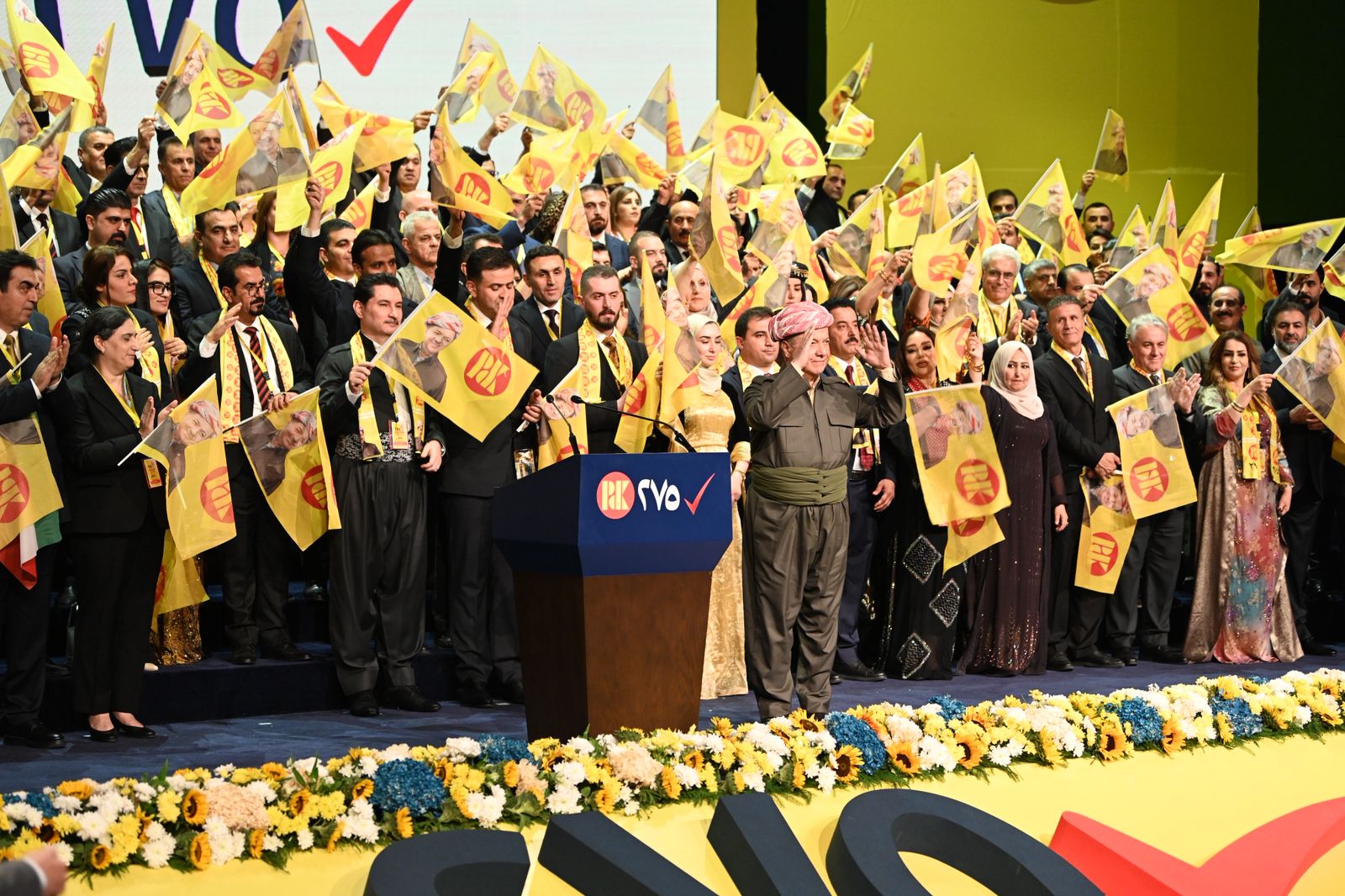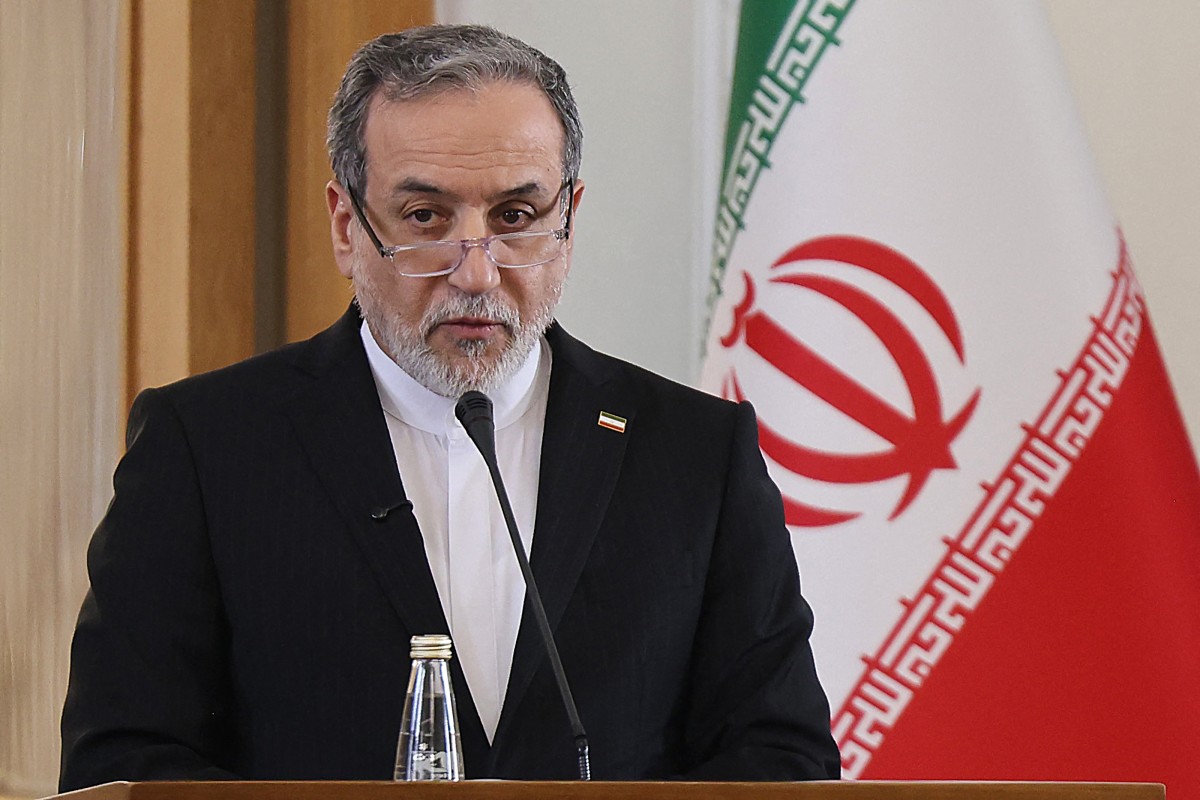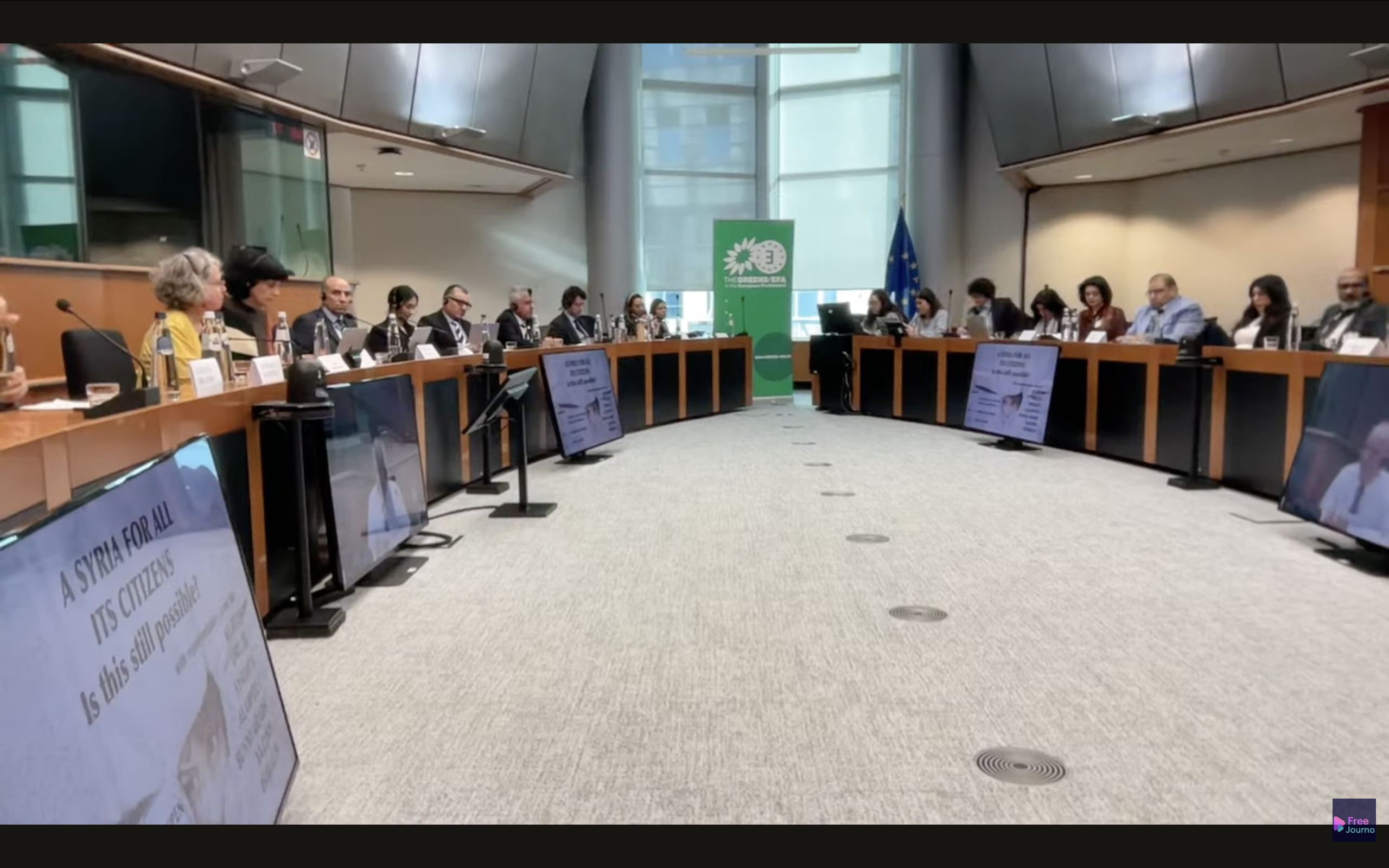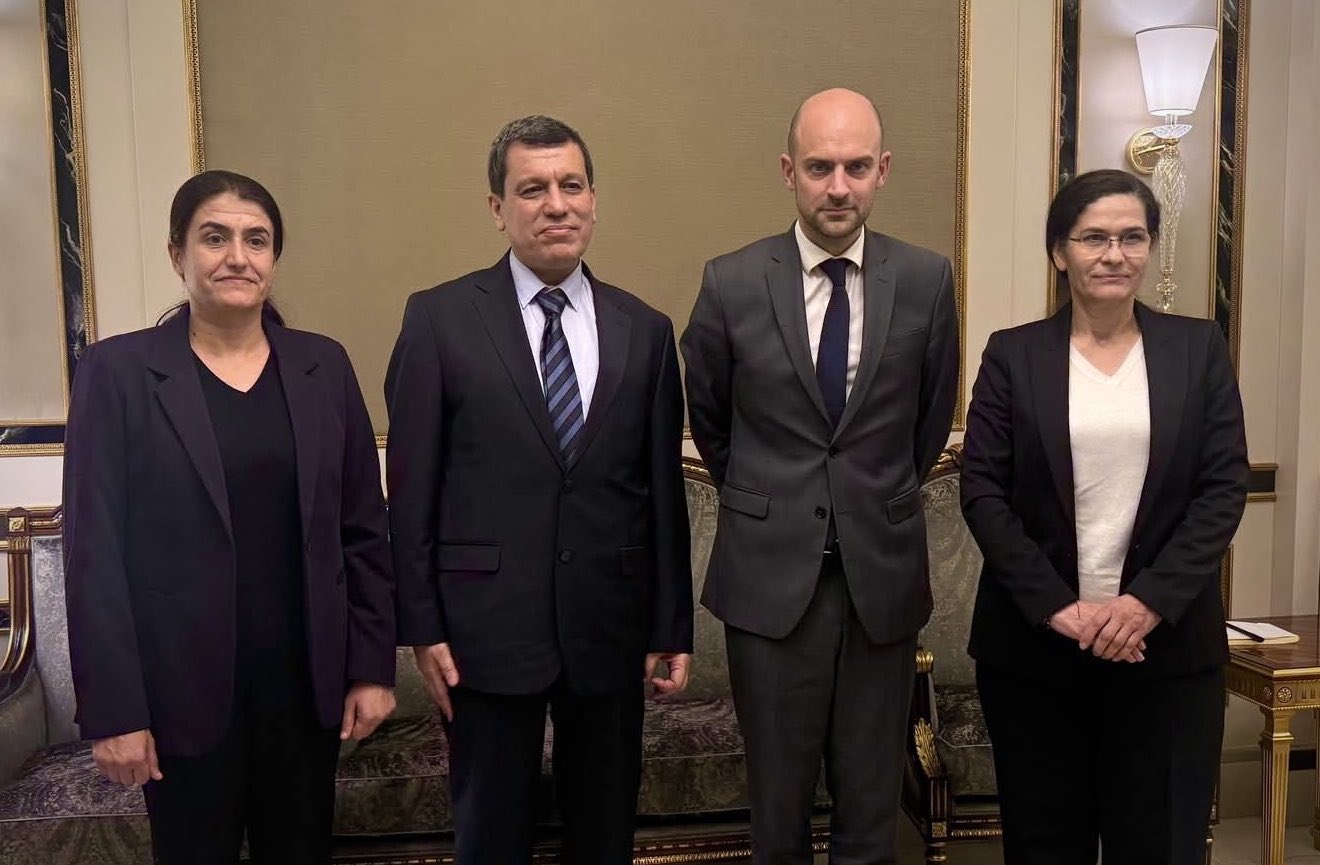As Iraq votes, Kurdish voters confront the same old political faces
Picture Credit: KDP social media page
In the Kurdistan Region of Iraq (KRI), apathy toward the national elections on November 11 is a common political stance.
Since the 1990s, elections have reshuffled seats but not power, neither locally not at the national level. The same parties, the same leaders, and the same rivalries continue to define Kurdish politics. And as another national vote approaches, the political class remains determined, even as turnout has plummeted to barely a third of eligible voters.
Elections were once seen as a celebration of hard-won autonomy in the KRI. In 2005, the first election after the fall of Saddam Hussain’s Ba’athist regime, nearly every eligible voter in the KRI cast a ballot in the national vote. Now, with polling stations half empty, conversations on the streets of Hewlêr (Erbil) and Silêmanî (Sulaymaniyah) often carry the same refrain: nothing ever changes.
Nonetheless, major parties have launched expansive campaigns, investing heavily in political rallies, advertising, and public projects to secure their share of Kurdistan’s seats in Iraq’s 329-member Council of Representatives.
The KDP’s One-Million-Vote Mission
No party embodies the machinery of Kurdish politics as well as the Kurdistan Democratic Party (KDP). With 31 seats in Baghdad, it is the region’s dominant force and the Barzani family remains its public face.
Masoud Barzani, the party’s veteran leader, has avoided popular rallies. Instead he mostly meets socially prominent individuals such as tribal leaders, women, and clerics, railing against Baghdad’s historic and continued ill-treatment of Kurds. KRI Prime Minister, Masrour Barzani, has focused on publicizing new infrastructure projects, hoping to translate government visibility into votes. Meanwhile, Nechirvan Barzani, KRI President, travels between Sulaymaniyah and Nineveh to rally supporters with the promise of “a stronger Kurdistan inside Iraq.”
The party has an ambitious goal: to surpass one million votes across the country. In 2021 they won just over 800,000, and recent local elections suggest momentum is on their side. In the 2023 Iraqi provincial elections, the KDP won over 202,000 votes across Kerkûk (Kirkuk), Nineveh, Diyala, and Salahaddin. A year later, it secured over 810,000 votes in the KRI parliamentary elections.
If it hits the one million target, the KDP would become Iraq’s largest single party by vote count, an achievement that would further cement its dominance – in both Kurdistan and Iraq.
The PUK’s Gamble on Bafel Talabani
In Silêmanî (Sulaymaniyah), the Patriotic Union of Kurdistan (PUK) is waging a campaign centered on one man: party leader, Bafel Talabani, the son of the late Jalal Talabani – former Iraqi president and co-founder of the PUK. Bafel Talabani has rebranded the party around his personality, utilizing fiery speeches and a populist tone.
Critics say Bafel’s centralized leadership style and the imprisonment of several opposition figures have tarnished Silêmanî’s reputation as the freer half of Iraqi Kurdistan.
The PUK’s support surged in last year’s Iraqi Kurdistan regional elections, but it remains far behind the KDP. Critics say Bafel’s centralized leadership style and the imprisonment of several opposition figures – including members of the New Generation party and his cousin Lahur Sheikh Jangi, a former PUK leader – have tarnished Silêmanî’s reputation as the freer half of Iraqi Kurdistan. Still, the party’s inner circle believes consolidation will pay off.
Tightening the political space, however, has raised concerns among residents who once viewed Silêmanî as a hub of free expression. Whether voters will punish the PUK for restricting freedoms or reward it for consolidating power remains to be seen.
New Generation with a Jailed Leader
No party has shaken up Kurdish politics in recent years like the New Generation. Founded in 2017 by businessman and media tycoon Shaswar Abdulwahid, it grew rapidly by criticizing both ruling parties and attracting disaffected youth.
But this election, its leader sits behind bars. Arrested in August on charges of threatening a former party member, Abdulwahid was sentenced to five months in prison – a verdict his allies call politically motivated.
His absence has left a vacuum. New Generation has always been a one-man project; its campaigns built on his charisma and social-media reach. Without him, the movement has struggled to mobilize. Posters still bear his face, but few expect it to match its previous nine-seat result.
National Stance: A New Opposition Party
The newly formed National Stance party, led by Ali Hama Salih – a former lawmaker of the defunct Change Movement party – may benefit from the New Generation’s troubles. The uncertainty has opened space for new voices, and Salih, known for his anti-corruption speeches, remains one of the most popular figures in Kurdish politics. He holds the record for the highest personal vote count in the history of the Kurdistan Parliament with nearly 140,000 votes.
National Stance brands itself as an independent, reformist bloc focused on transparency and closer cooperation, rather than confrontation, with Baghdad. The party won four seats in last year’s regional elections and is entering the national elections for the first time.
Islamic Parties Hold Their Ground
While the big players battle for dominance, the smaller Islamic parties remain steady. The Kurdistan Islamic Union (KIU) and the Kurdistan Justice Group (KJG) together hold five seats in Baghdad and are not expected to grow. Yet both remain active in conservative communities, shaping debates on family, morality, and education.
Often described as the “opposition of society” rather than of government, they speak to a segment of Kurdish voters who feel alienated by both the Barzanis and the Talabanis but still distrust secular reformers. Their influence is subtle but enduring.
Apathy: The Real Winner
For many Kurds, the ballot box has lost meaning in a landscape where power is inherited, not earned.
Despite all the rallies, promises, and slogans, the strongest political force in the Kurdistan Region today may be apathy. Voter turnout has collapsed from 95 percent in 2005 to just 35 percent in 2021.
No party, no reform movement, and no new face has managed to reverse the trend. For many Kurds, the ballot box has lost meaning in a landscape where power is inherited, not earned. The frustration mirrors a broader national mood: Iraqis across the country are losing faith in a political system that seems incapable of renewal.
Renwar Najm
Renwar Najm is an Iraqi Kurdish journalist with a career that began in the early 2010s at the esteemed Awene newspaper. He holds a master’s degree in Peace and Conflict Studies from the University of Kent and Philipps University of Marburg.




